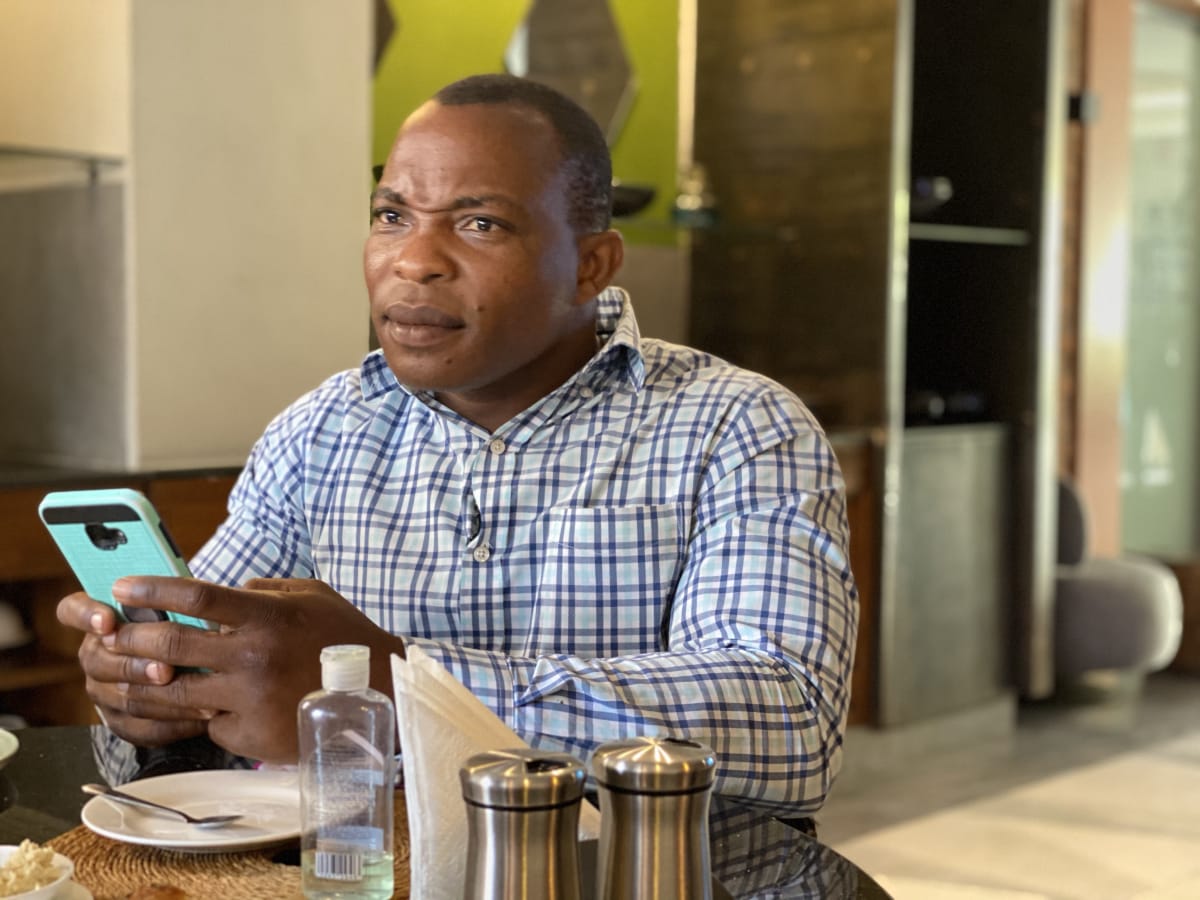On the fringes of Ghanaian society, a boy with disabilities struggles to survive every day. But Maclean Atsu Dzidzienyo grits his teeth. And finally, sport changes his life: As a successful Paralympian, he now campaigns for people with disabilities to be accepted as a natural part of society.
Maclean Atsu Dzidzienyo is nine years old when his life changes from one day to the next. Due to severe headaches, his parents take him to the local hospital. “To this day, I don’t know what exactly happened then. Later, all I heard was that the doctor gave me an injection in the wrong place.” The next day, the boy can no longer feel his legs, no longer stand, no longer walk. And this in a poorer neighborhood in Ghana’s capital, Accra. His parents have four siblings to care for, and they can barely make ends meet anyway.
For a son who can no longer feel and move his legs, there is no place in a society that stigmatizes disabilities and where many parents hide or even kill children with disabilities. Though Maclean remains alive, his mother abandons the family after this blow. “What was she supposed to do?” asks Maclean today, nearly 30 years later. “The neighbors said she was cursed.
On his hands he crawls through the streets, in the bushes he sets traps.
His father at least lets him have a roof over his head, but that’s all. At the age of nine, Maclean is completely on his own. He crawls through the streets on his hands, sets traps in the bushes – he learned to hunt from his father in his early youth. He uses homemade snares to catch small rodents, cats and squirrels, which he sells at the market. That’s how he makes ends meet, to some extent. “Life back then was hard, really hard,” recalls Maclean, who barely earns enough to pay his school fees.
Without education, the boy knows, he has no chance in this world. Again and again, he comes across people who support him and at some point – by which time he is already in high school – organize a wheelchair. Also with their help, Maclean is able to finish school with a university admission.
Athlete, businessman, activist
However, Maclean does not give up hunting for a long time, and he is still on his hands. This is also the case on the day he meets Elvis Kusi Alipui. Elvis is an activist who advocates for the rights of people with disabilities. He’s a sports nut who gives Maclean access to the world of disability sports. Basketball is Maclean’s first discipline – he makes it into the selection for the Paralympics. This is followed by 1,500-meter races and finally the supreme distance: the marathon. Maclean becomes an idol in Ghana and an advocate for people with disabilities. “Others see that there is more for people with disabilities than begging for handouts on the streets. I can inspire them,” says the five-time gold medalist, who has made a name for himself not only in basketball and the marathon. He is also the first Ghanaian ever to compete in the prestigious Wimbledon tennis tournament.
“The sport saved me,” Maclean says. But it’s not just the sport – it’s mainly himself, who never gives up and pursues his goals. Professionally, too, Maclean goes from being a hunter to a very successful breeder. He can make a reasonable living from selling the agoutis, which are very popular on Ghana’s menus – until business collapses due to Corona, because rodents, among others, are blamed for spreading the virus.

Barrier-free infrastructure – and everywhere
At the beginning of the pandemic, Maclean had already completed training as an accountant, but he was unable to find a paid job. It’s the same for many people with disabilities. “I know a lot of people who are looking for jobs and are really well qualified,” he says. “But they can’t get employment.” Partly because of the dismissive attitude toward people with disabilities, Maclean explains. On the other hand, because the infrastructure in Ghana is not designed accordingly: Hardly any office, hardly any building in Ghana is barrier-free – so they are not accessible for people in wheelchairs.
Auch der öffentliche Nahverkehr ist nicht auf Menschen mit Behinderungen ausgerichtet. Und von Taxifahrer*innen werden sie häufig nicht mitgenommen. Dabei ist der Zustand der Straßen mit unzähligen Schlaglöchern und fehlenden Gehwegen schon für Menschen ohne Behinderungen ein großes Sicherheitsrisiko. Für Menschen mit Behinderungen ist die mangelhafte Infrastruktur daher oftmals ein unüberbrückbares Hindernis.
Maclean arbeitet ehrenamtlich bei „go get dem“, einer Organisation, die Sportler*innen mit Behinderungen fördert – und die sich auf allen Ebenen für die Verbesserung ihrer Lebensumstände einsetzt. Langsam ändere sich die Einstellung gegenüber Menschen mit Behinderungen in Ghana, sagt Maclean, immer häufiger sehe man Rampen zu Läden und Büros. „Aber das reicht natürlich nicht!“ Wenn er die Macht dazu hätte, würde er gerne genau hier ansetzen, sagt der Sportler, Geschäftsmann und Aktivist Maclean. Er würde für Teilhabe an allen gesellschaftlichen Bereichen für Menschen mit Behinderungen sorgen – nicht nur im Sport, sondern überall. Das sei echte Inklusion.